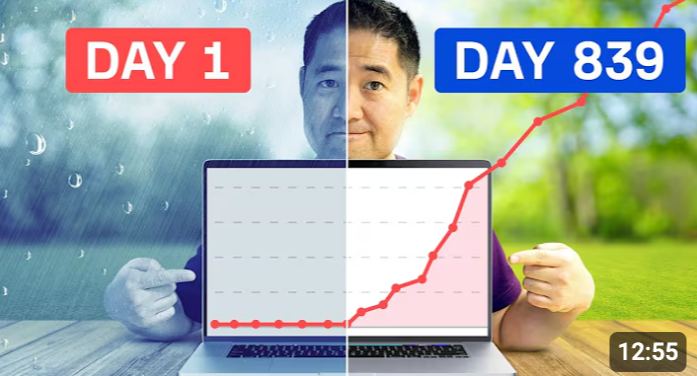
Job Description (JD) คืออะไร และมีความสำคัญอย่างไรในโลกของการทำงาน
เคยเห็นคำว่า Job Description (JD) ในประกาศรับสมัครงานไหม? หลายคนอาจมองข้าม แต่จริง ๆ แล้วมันคือ “หัวใจสำคัญ” ที่บอกทุกอย่างเกี่ยวกับตำแหน่งงาน ตั้งแต่หน้าที่ ความรับผิดชอบ ไปจนถึงคุณสมบัติที่ใช่ของผู้สมัคร มาดูกันว่าทำไม JD ถึงสำคัญกว่าที่คิด! Job Description หรือ JD เป็นเอกสารที่มีการบรรยายรายละเอียดเกี่ยวกับตำแหน่งงาน ซึ่งรวมถึงหน้าที่ ความรับผิดชอบ คุณสมบัติที่ต้องการ และเงื่อนไขการทำงาน เป็นการสื่อสารที่ชัดเจนระหว่างนายจ้างกับพนักงาน ทำให้ทุกคนเข้าใจว่าตำแหน่งงานนั้นต้องการอะไรบ้าง องค์ประกอบของ JD ที่ควรรู้ การเขียน JD ที่ดี ควรมีองค์ประกอบหลักดังนี้: ชื่อตำแหน่งงาน (Job Title): ชื่อตำแหน่งงานเป็นส่วนแรกและสำคัญที่สุด เพราะเป็นสิ่งที่ใช้ในการอ้างอิงและเรียกตำแหน่งนั้น ชื่อตำแหน่งควรชัดเจน เข้าใจง่าย และสะท้อนภาระงานที่แท้จริงได้ดี เช่น Marketing Executive, Software Developer, HR Officer เป็นต้น บางองค์กรอาจเพิ่มแผนกหรือระดับความรับผิดชอบ เช่น Senior Marketing Manager (Digital) เพื่อให้เข้าใจได้ทันทีว่าทำงานสายไหนและระดับใด หน้าที่และความรับผิดชอบ (Responsibilities): นี่คือส่วนที่อธิบายว่างานหลักๆ ที่จะต้องทำวันต่อวัน ควรระบุให้ชัดเจนว่า งานอะไรเป็นหน้าที่หลัก งานใดเป็นหน้าที่รอง ใครที่คุณจะต้องรายงานผล ใครที่คุณจะต้องสนับสนุน เช่น สำหรับตำแหน่ง "Marketing Manager" หน้าที่อาจรวมถึง การวางแผนแคมเปญการตลาด การวิเคราะห์ข้อมูลตลาด และการรายงานผลแก่ผู้บริหาร คุณสมบัติและทักษะที่ต้องการ (Qualifications & Skills): องค์ประกอบนี้ระบุว่าบุคคลต้องมีอะไรเพื่อสำเร็จในตำแหน่งนี้ คุณสมบัติของบุคลากร: ระดับการศึกษา (ปริญญาตรี ปริญญาโท เป็นต้น) ประสบการณ์ที่ต้องการ (เช่น มี 3-5 ปีประสบการณ์ในด้าน Marketing) ความเชี่ยวชาญเฉพาะ (ถ้ามี) ทักษะที่ต้องการ: ทักษะเทคนิค (Technical Skills) เช่น ความสามารถใช้ software, programming languages ทักษะนุ่ม (Soft Skills) เช่น การสื่อสาร การทำงานเป็นทีม ความสามารถในการแก้ปัญหา ทักษะภาษา (ภาษาอังกฤษ, ภาษาไทย) ความสำคัญของ JD ต่อผู้สมัครงาน 1. ความเข้าใจชัดเจน: JD ช่วยให้ผู้สมัครงานรู้ว่างานนี้มีลักษณะอย่างไร ต้องทำอะไร ไม่มีการสับสนหรือความคาดหวังที่ไม่ตรงกัน 2. การเลือกงานที่เหมาะสม: ผู้สมัครสามารถประเมินว่าตนเองเหมาะสมกับตำแหน่งนี้หรือไม่ ก่อนตัดสินใจสมัครงาน ช่วยประหยัดเวลาของทั้งสองฝ่าย 3. การเตรียมตัวสอบสัมภาษณ์: JD ให้ข้อมูลว่าผู้สมัครควรพัฒนาหรือเตรียมอะไรบ้างเพื่อให้พร้อมสำหรับตำแหน่ง 4. ความยุติธรรมในการประเมิน: ผู้สมัครทุกคนอยู่บนเกณฑ์เดียวกัน เพราะทุกคนรู้ว่าคุณสมบัติและทักษะที่ต้องการคืออะไร ความสำคัญของ JD ต่อองค์กรและ HR 1. การทำให้ชัดเจนบทบาทและความรับผิดชอบ: ช่วยให้พนักงานรู้ว่าต้องทำอะไร ซึ่งลดความสับสนและความขัดแย้งในที่ทำงาน 2. การประเมินผลการทำงาน (Performance Evaluation): เมื่อมี JD ชัดเจน HR สามารถประเมินผลการทำงานของพนักงานได้ยุติธรรมและเป็นตัวเลข ตามผลงานที่คาดไว้ 3. การบริหารเงินเดือนและค่าจ้าง: JD ช่วยให้องค์กรสามารถกำหนดเงินเดือนที่เหมาะสมตามความซับซ้อนของงานและระดับความรับผิดชอบ 4. การติดตามการพัฒนาบุคลากร (Training and Development:) โดยการเลือกหลักสูตรการฝึกอบรมที่ตรงกับความต้องการของงาน 5. การลดการเลือกสรร (Bias Reduction): กำหนดเกณฑ์เดียวกันสำหรับผู้สมัครทั้งหมด ช่วยลดอคติในการสรรหาคนเข้างาน ตัวอย่าง JD จริง Marketing Executive วางแผนและดำเนินการแคมเปญการตลาดออนไลน์ สร้างและจัดการคอนเทนต์บนโซเชียลมีเดีย ประสานงานกับทีมดีไซน์และพาร์ทเนอร์ คุณสมบัติ: จบการศึกษาด้านการตลาดหรือสาขาที่เกี่ยวข้อง มีทักษะการสื่อสารที่ดี รักงานครีเอทีฟ ใช้เครื่องมือโฆษณาออนไลน์ (Facebook Ads, Google Ads) ได้ HR Officer: จัดการงานสรรหาและสัมภาษณ์พนักงาน ดูแลข้อมูลพนักงานและสวัสดิการ สนับสนุนกิจกรรมภายในองค์กร คุณสมบัติ: มีความรู้พื้นฐานด้านกฎหมายแรงงาน ใช้โปรแกรม HRM System ได้ มีทักษะการสื่อสารและประสานงานที่ดี สรุป : ทำไม JD ถึงเป็น “หัวใจ” ของทั้งการหางานและการบริหารงาน Job Description ไม่ใช่เพียงเอกสารแบบฟอร์มทั่วไป แต่เป็นสะพานเชื่อมที่สำคัญระหว่างองค์กรและพนักงาน ประโยชน์ของ JD มีหลายด้าน สำหรับผู้สมัครงาน: JD ให้ความชัดเจนในการเลือกงาน ช่วยลดความผิดหวัง และเตรียมตัวให้พร้อมสำหรับการสัมภาษณ์ สุดท้ายช่วยให้คนที่เหมาะสมสมัครงาน สำหรับองค์กรและ HR: JD ช่วยให้การทำงานประเมินผล บริหารความเสี่ยง และพัฒนาบุคลากรได้อย่างเป็นระบบ ลดปัญหาในการจัดการทรัพยากรบุคคลและช่วยเพิ่มความสำเร็จขององค์กร ดังนั้น JD ที่ดีและชัดเจนจึงเป็นพื้นฐานของการบริหารทรัพยากรบุคคลที่มีประสิทธิภาพ และเป็นหัวใจของกระบวนการหางานและการบริหารงาน ในองค์กรสมัยใหม่ พร้อมหางานที่มี JD ชัดเจนและตรงกับคุณแล้วหรือยัง? ค้นหางานที่ใช่สำหรับคุณได้ที่ Jobcadu.com










